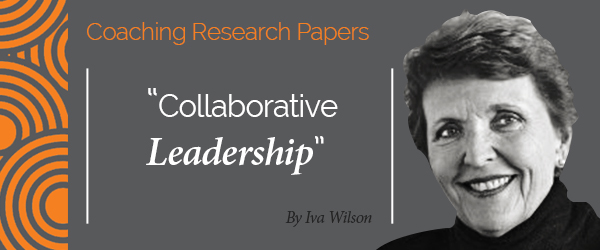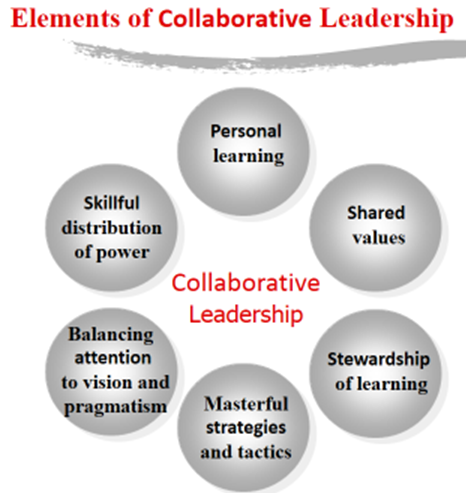Research Paper By Iva Wilson
(Executive Coach, UNITED STATES)
The term Collaborative Leadership describes an emerging body of theory and management practice which is focused on the leadership skills and attributes needed to deliver results across organizational boundaries.
Summary
This leadership article is based on the book
The Power of Collaborative Leadership; Lessons for the Learning Organization.
This book was written by three co-authors, Iva Wilson, Bert Freedman, and JoAnne Wyer (www.learningorganization.com). The book is a compilation of stories of several leaders who were all implementing the principles of Organizational Learning in their respective organizations. All but one have subsequently lost their jobs. It also contains research the authors conducted to underline the principles discussed in the book. One of those interviewed did this work as he said as “stealth”. In other words he just did what he believed was necessary and never told his boss about it. He let only the results speak.
The rest of us were much bolder, as we wanted to show to our bosses that these new ideas brought by Peter Senge in his book “The Fifth Discipline” will have a major positive impact on the results and we wanted the entire organization to implement the same. In many ways we evangelized Organizational Learning.
As we interviewed the leaders for this book we learned that Organizational Learning as a methodology to improve organizational effectiveness did not work. One of the objectives of the book was to develop a leadership model we believed would allow leaders to be more successful and create better results, i.e. through “Collaborative Leadership.”
At this point in time I do not know whether anybody tried to apply this model and whether they were successful or not. What I do believe is that if the original model included coaching leaders, they would have been more successful in leading their organizations.
Since the original model did not include coaching for leaders as a result we all, except one (that did the work in a “stealth mode”) lost our jobs. This was unfortunate for me, but it taught me a big lesson. One of the reasons I want to be a coach is to help other leaders not to get into the same situation I found myself in.
Herewith a leadership model derived from the book.
The original model spoke about coaching only in one element, i.e. “Skillful distribution of Power.” Subsequently once I became a coach and in particular while going to ICA I realized how coaching of leaders can enhance the leader’s ability to become a more effective leader and added this to the original model.
Personal Learning
The core of being a learner is embracing a stance of “not knowing.” It’s a hunger to discover. It’s about letting go of trying to prove our thinking is correct, validating our thinking, and replacing that with a search for – what is producing the results we’re getting? How am I contributing to that, for good and for bad? How might our thinking be leading us down the wrong road? When accepting the learning stance seeking a coach to support our learning is essential. The coach can by listening and asking powerful questions get us to understand what we need to do to improve pour learning process.

